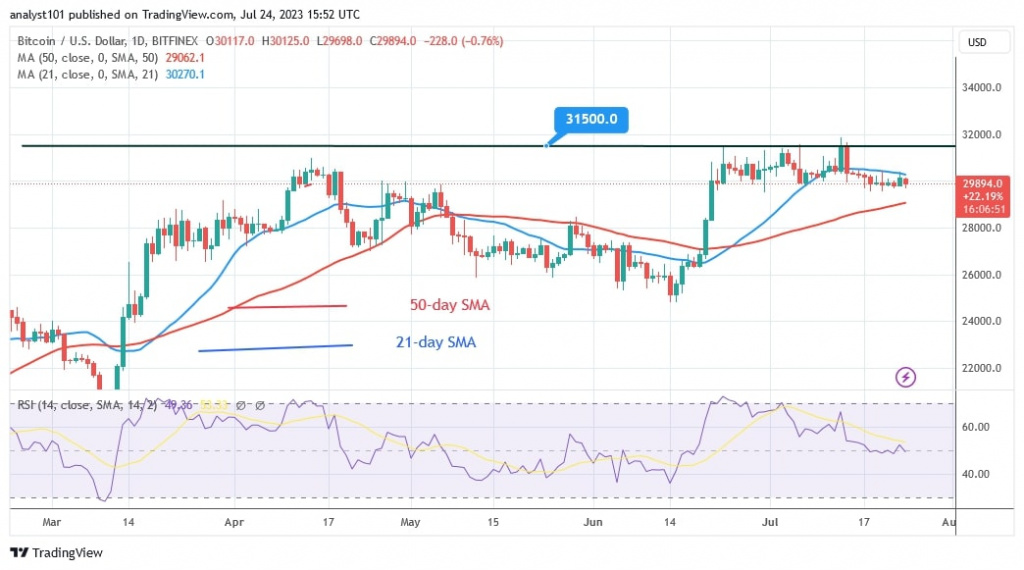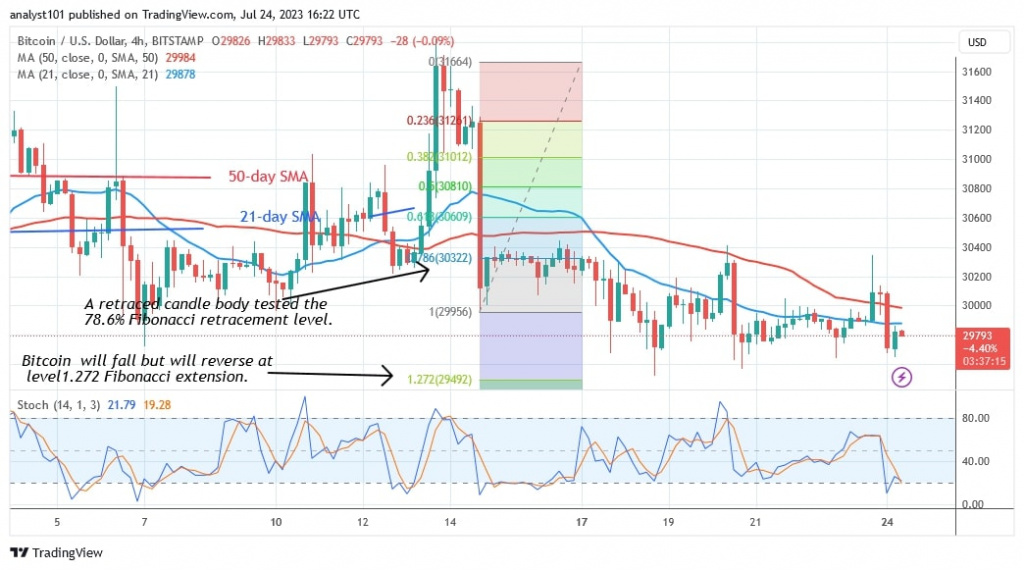Bitcoin Moves Above $29,500 As Traders Show Apathy
The price of Bitcoin (BTC) is squeezed between the moving average lines after the price decline on July 14. The current decline has stopped above the $29,500 support level due to the doji candlesticks.
Bitcoin (BTC) Price Long Term Forecast: Bearish
The doji candlesticks signal that buyers and sellers are undecided about the direction of the market. The price signal, on the other hand, indicates a likely breakdown and reversal above the $29,500 support. In the meantime, Bitcoin continues to trade between the moving average lines.
It is unlikely that the loss will fall below the 50-day line SMA. If the bears break below the 50-day line SMA, it would be the beginning of a new downward movement. The cost of BTC is currently declining, with a recent low of $29,803. As soon as the cryptocurrency crosses the 21-day line SMA, it will start to go up.
Bitcoin (BTC) Indicator Reading
Bitcoin has entered the bearish trend zone of the Relative Strength Index at 48 for the period 14. Doji candlesticks show that the cryptocurrency value is moving in a range. The moving average lines have caused a range in the bitcoin price. When the moving average lines are broken, the price will go back to the trend. The crypto asset has fallen below the daily stochastic threshold of 20.
Technical Indicators:
Key resistance levels – $30,000 and $35,000
Key support levels – $20,000 and $15,000
What is the next direction for BTC/USD?
Bitcoin’s volatility will continue as price action is dominated by doji candlesticks. The candlesticks show the uncertainty of traders. During the decline on July 14, Bitcoin reversed to the upside and tested the 78.6% Fibonacci retracement level. The correction predicts that Bitcoin will decline but reverse at the 1,272 Fibonacci extension or $29,492.
Disclaimer. This analysis and forecast are the personal opinions of the author and are not a recommendation to buy or sell cryptocurrency and should not be viewed as an endorsement by CoinIdol.com. Readers should do their research before investing in funds.
Source: Read Full Article





